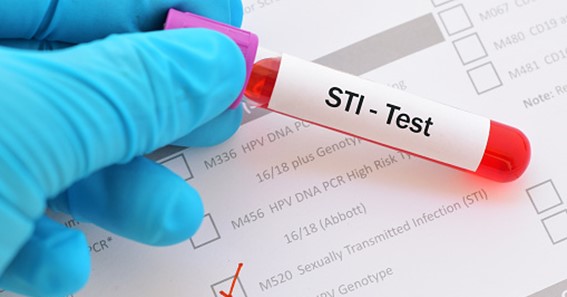Sexually transmitted diseases (STDs) or Sexually transmitted infections (STIs) affect 374 million people worldwide, as per reports from World Health Organization (WHO). As the name indicates, they usually spread through sexual contact.
Sexually transmitted diseases (STDs) are caused by one of the three vectors: bacteria, viruses, or parasites. There are nearly 20 types of STDs known to humans but the most commonly reported are:
- Gonorrhea
- HIV/AIDS
- Syphilis
- Genital Herpes
- Chlamydia
What are the Symptoms of STDs and How to Prevent them?
Sexually transmitted diseases share common symptoms irrespective of the vector that caused them. However, it is important to test yourself from time to time to detect the infection because few types do not show symptoms at all or take years to show symptoms. Now, you can also take these tests at home and take STD treatment online.
Some of the most common symptoms of are:
- Redness if or around genitals
- Vaginal bleeding
- Vaginal discharge
- Pain during urination
- Pain during sexual intercourse
- Fever
Prevention of STDs
Before dwelling on the prevention of STDs, one should know which risk factors contribute to the spread of these diseases. Eliminating the risk factor will ultimately spread sexually transmitted diseases. Here are a few ways you can prevent or limit the spread of STDs.
-
Take Precautions During Intercourse
Sexually transmitted diseases spread mainly through sexual contact. It is therefore important to take precautions during intercourse to avoid contracting the disease in the first place. For instance, using condoms can act as a barrier and protect you and your partner from the infection.
-
Avoid Contaminated Syringes
Blood transfusion is another STDs spread. It is therefore important to always use sterile or new syringes for any medical treatment instead of a used one. For instance, HIV is common among drug addicts because of sharing needles/syringes for taking drugs. Therefore, always use sterile needles/ syringes to prevent the contraction of the disease.
-
Test Yourself Regularly
Testing yourself regularly for STDs will not only keep your health in check but also protect your partner from contracting it. Now you can have a home std test to check if you are positive for a disease or not and consult a physician to seek treatment if needed. In this way, you can ensure your own and your partner’s health.
STDs and Mental Health
STDs do have physical effects on the affected person but more than that it has mental health implications. The affected person often gets the treatment for the disease but goes through a plethora of emotions in which stigma and shame are at the top. The feeling of resentment and anxiety leads to a build-up of stress hormones and often impacts the physical health of a person.
Here are a few ways in which STDs can affect the mental health of an affected individual:
-
Lack of Concentration in Daily Activities
One of the major implications of STD on an affected individual is the feeling of depression. The person suffers from depression which affects his day-to-day activities. He finds it hard to concentrate on daily tasks and feels sad all the time due to his condition. He finds it embarrassing to talk about his condition in public and abstains from leaving his room.
-
Anxiety Issues
The affected person suffers from anxiety issues. He finds his future gloomy considering the fact that STD has changed his relationship or sex life altogether. He feels like he will just repel people if they come to know about his condition. As a result, stress and anxiety issues start to develop. The constant increase in stress hormones can have adverse effects on the physical health of the person and worsen the condition.
-
Isolation
The person suffering from sexually transmitted diseases isolates himself from the outside world due to feelings of shame and stigma. The relationship changes and a feeling of loneliness kicks in. The person thinks he’s alone fighting this battle and sadness fills the heart. Remember that it’s a disease and it could have happened to anybody. Instead of blaming yourself, you should buckle up and consider yourself a hero for fighting this fight.
What You Can Do to Deal With Mental Health Issues Associated With STDs?
Millions of people suffer from this annually. And from the thorough treatment, you can beat it. Keep yourself healthy and follow a mindful diet to stay active. Seek professional help to not only cure your disease but also fight the mental health issues and turn them into your strengths for the better. Join community groups facing the same problem and learn from people who have once walked in your shoes or are still bravely fighting. Make sure you spend time with good friends who support you and keep you motivated. This will improve your mental health and you won’t feel alone in this fight.

